Empty dropdown
Notes:Founder respondents only. Numbers do not add to 100 as respondents could choose multiple options.
As many founders enter a bear market for the first time, we explore how they’ve adapted their fundraising and management to new challenges.
Who are the leaders that will see tech through this downturn? As new waves of founders join veterans with previous downcycle experience, we take a look at their experiences and characteristics.
As last year, we check in on progress on diversity metrics. While founders, LPs, and VCs are all investing in diversity initiatives, year-on-year progress still lags.
Looking beyond the founders, we explore broader talent market shifts. Hiring remains a top challenge, but different groups disagree on the best way to attract and retain talent.
Many founders enter a bear market for the first time, adapting their fundraising and management to new challenges.
Last year, more than a third of founders said fundraising had become easier compared to the year before. This year reversed that trend: 80% of all founders say it's now harder to raise.
Morale and retention are founders’ top concerns for the future, replacing team growth.
Despite the challenges ahead, founders have maintained or increased their confidence in Europe's ability to build global technology leaders, compared to 12 months ago.
Last year, more than a third of founders said fundraising had become easier compared to the year before - less than 20% said it was more difficult. Unsurprisingly, this year changed that trend - with nearly 80% of all founders saying it's now harder to raise funds.
It is worth noting though, that ethnically underrepresented founders (as self-identified in the survey), already found last year's fundraising environment more challenging than white men by a full 12 percentage points. The new reality isn't that new for underrepresented founders, who typically face heightened barriers in this sector. We will explore the state of diversity and inclusion in more detail in its dedicated sub-chapter.
Overall, the vast majority of founders have come to acknowledge the new market reality: while it wasn't easy to begin with, fundraising has become a lot harder than it was 12 months ago.
The founders who raised funds in 2020 and 2021 are most likely to see a shift in the market - with 86% reporting that it is harder to raise capital today than when they did.
of founders and C-Level executives had to make unexpected changes to their fundraising process.

We see an increased focus on technology development relating to the sustainable energy and climate improvement sector. The energy transformation is one of the biggest industrial changes of our time and I think we will continue to see a lot of new market opportunities even through the downturn. This is an area where Europe has strength and can create companies that make it globally. However, we will also see the fall-out of start-ups that have not secured sufficient runway of capital and/or have weaker performance. The focus has now gone from growth and market share capture to showing profitability and preserving cash. Funding takes longer and the appetite for risk is lower. I do not anticipate this to change in the next 12 months.
In this new context, the most common adjustments founders and C-Level executives have made are to their valuation expectations, the length of the fundraising process, and round sizes.
The overwhelming majority of these survey respondents see the changes as unfavourable. In other words, they achieved lower valuations than expected, it took longer than planned to raise, and they raised less than they hoped. Less than 20% of respondents bucked this trend, and had more favourable experiences.
If we zoom in on founders' expectations on valuations, we find that these are prone to change regardless of the broader market environment.
It is by far the most cited negative adjustment founders who raised this year say they've made to their fundraising process, with 82% of them saying that their valuation expectation was effectively revised down. However, this is not particular of those who raised this year. In fact, those who report last raising across the years 2019 - 2020 are saying the same. So, resetting expectations on valuations is nothing new, and the price discovery process is a necessary evil when founders go to market.
Other changes made seem more reactionary to the market shift. For example, more founders who raised in 2022 compared to earlier years report having to make "unfavourable" change to their fundraising timeline which undoubtedly mean stretching it longer.
In bullish funding environments, companies are able to see their valuation grow higher, faster.
Below, we explore this growth by looking at the average step-up in valuation between funding rounds, as measured by the change between the pre-money valuation of the current round and the post-money valuation of the prior round. For example, if the valuation of a company doubles between rounds, it is reflected as a 2x valuation step-up.
After what was already a long upwards run, valuation increases spiked materially during last year's booming market conditions, reaching an all-time high of 1.7x for the median company. For companies in the top quartile, the spike was even more pronounced. The valuation increase at the 75th percentile reached 2.9x in 2021.
As the market has cooled, a reverse trend is already appearing. Both at the median and 75th percentiles, the average jump in valuations between rounds has stopped increasing.
Looking more closely, Seed stage companies pre-money valuations have continued to grow at median in the most recent quarter, while all other stages have experienced a slowdown. While the bottom decile and quartile at Seed are showing first signs of a valuation recalibration this quarter, the other stages got hit earlier. Series A and B valuations took a step down in the second quarter of the year, while pre-money valuations at Series C peaked already in the final quarter of 2021.
Another feature of a buoyant market environment, characterised by high levels of capital supply and positive investor sentiment, is a tendency for companies to be able to raise additional funding without taking a down round.
Unsurprisingly, there has been a steady decline in the share of down rounds over the past years. 2022 has, interestingly, seen this trend continue. In a year of transition, a certain lag in down rounds is to be expected. This is because many companies that might expect a down round if they were to raise new external capital in the immediate term simply choose to put that moment off until it's an absolute necessity. The market should expect the downward trend of down rounds to reverse across the board, as more companies are 'forced' to come back to the market to raise.
The length of time between funding rounds tends to compress when markets are hotter. Recent years have seen the average time between funding rounds trend shorter as companies proved able to raise new rounds at an increasing cadence. In fact, in Q1 2022, the average time fell to a record low across both early and late stage companies, at 14 and 23 months respectively.
It's always interesting to separate the market average from what is happening with the companies at the extreme ends of the scale. Looking at the 10% who raised fastest ('the fastest decile'), in Q1 2022, the average time between rounds fell to 4 months for early stage companies, and just below 7 months for late stage companies.
We can expect this trend to shift in the other direction in the coming year. There are already signs from June 2022 onwards that the average time between rounds is elongating again, hitting companies raising the slowest most significantly ('slowest decile'). At the early stages, it now takes 6 months more for those companies to raise their next round, compared to 2 months more for those raising the fastest. For later stage companies the disparity is even more significant: an increase of more than 6 months for the slowest, compared to just 1 month for the fastest companies.
Prudent cash flow management becomes more important when the market shifts from relative capital abundance to scarcity. It's not surprising then, that almost half of the founders we surveyed plan to decrease burn rate over the next 12 months to extend their cash runway. This has, unsurprisingly, led to a wave of layoffs across the industry - data we explore later in this chapter in "Talent market conditions".
While some founders have sought to avoid fundraising in an uncertain and volatile market, many will need to go back to market over the next 12 months to raise further equity or debt financing. More than a third of founders (35%) expect to increase cash by raising additional equity financing, and 13% expect to raise debt financing.
Almost one in five founders expect to accelerate investment over the next 12 months, perhaps indicative of the fact that some founders, especially those with the luxury of strong balance sheets, will see the turbulent market conditions as an opportunity.
The median size of funding rounds has recalibrated swiftly, though the picture differs by stage, with Seed stage rounds so far insulated from the sharp declines seen at Series A and later stages.
At Seed stage, round sizes continued a multi-year growth trend, hitting the highest-ever levels recorded in Q2 2022, both at the median and at the 75th percentile. In Q3, the median round size remained steady, while the top quartile saw a slight decline.
At Series A, round sizes increased rapidly during the pandemic years, and are now showing signs of having passed a peak in H1 2022. The median Series A hit a peak of $11.4m in Q1 this year, while rounds in the top quartile appear to have peaked at just over $20M in Q2.
At Series B and Series C, the observable trends in round size evolution are similar, following a story of rapid growth during 2020 and 2021, followed by a rapid and material decline at both the median and 75th percentile in 2022.

There is a knee-jerk tendency to say "slow growth; get profitable." The advice, in fact, should be far more nuanced – find your efficiency frontier and know exactly which levers you can pull to change the profitability profile – and under what circumstances.
of VCs recommend portfolio companies decrease burn rate in order to manage cash flow.
We asked founders which factors they believe will positively and negatively influence their ability to raise capital during the next 12 months.
Across all company stages, founders most often cite their growth rate and financial metrics as the factors likely to have a negative impact. Cash burn and capital efficiency are also frequent answers. The more late-stage the business, the more likely the founder is to be concerned about hitting key milestones, with 16% of Series C founders saying their ability to do so could negatively influence their next raise, compared to just 9% of Series B founders.
As for the factors that can have a positive impact, progress against key milestones is the most cited across the board. For founders of early-stage companies (Series A and earlier), business growth rate is the second most important factor, while for founders of Series B and Series C companies, operational metrics, unit economics, and sales efficiency are all commonly cited.

My experience raising a Series C in 2022 is that, while the capital is still out there, and investors are still hunting great companies, the mood has changed drastically. Where there was greed, now there's fear. Where there was optimism now there's pessimism. Investors have reduced the risks they are willing to take. A company that might run out of cash in 18 months with this round? Pass. A company that plans on raising a round in 12 months at a 3x mark-up from today's valuation? Pass. A start-up with low gross margins, long payback periods or poor customer retention? Pass. The bar is simply higher. And startups who don't pass the bar need to cut costs and survive until they can fix those issues and raise, probably having to lower expectations when it comes to multiples and other terms.
We asked founders to share the biggest commercial, operational and financial challenges their companies have faced in the past 12 months (challenges related to talent were excluded, and covered separately). Responses varied significantly depending on the stage of their company, reflecting the unique challenges presented at each phase in a company's evolution.
Founders in the earliest stages of building their companies are most likely to be grappling with product-market fit and securing access to capital. Finding product-market fit is a less prominent challenge among founders at later stages though, notably, almost a third of founders still mention it even at Series A and Series B.
Commercial traction, or growth, is a challenge that spans all company stages, as demonstrated by the share of founders across the board who cite 'securing new customers' and 'building repeatable sales processes'.
The challenges most correlated to company stage are managing burn rate and existing customer churn, increasing in prevalence at each new funding round. In short, as companies mature, the onus falls on delivering consistent and sustainable growth that can balance growth and capital efficiency.
Regulatory requirements also capture a share of concern for founders – in particular for those that have scaled past Series C, where the policy landscape becomes more important.

Given capital has historically never been as abundant in Europe as in the US, European founders have learned how to build their businesses and manage cash well in often uncertain times, with companies such as Checkout.com and MoonPay bootstrapped to tens of millions of revenue before taking on external investment.
Looking ahead to the next 12 months, we asked founders to anticipate the biggest challenges they'll face. Comparing these against the challenges they reported experience in the past year, we can draw out the specific challenges founders expect to become tougher in 2023.
The graphs below show the percentage point difference in how often the various answers were given when looking at the past 12 months compared to the coming 12 months, to help better spot the trends across stages. The taller the bar in the graph, the bigger the increase in importance looking forward, as suggested by founders' answers. If the metric is negative, it implies that the measure was more important in the past and has lost significance in priority looking forward to the next 12 months.
Going into the next 12 months, securing access to capital is the top concern for all founders, with the exception of those at Series C and beyond. While this was already challenging in the past year, the expectation is that this will get even more so as the spread widens across Pre-Seed, Seed, and Series A, with 3, 10, and 7 percentage point increases respectively.
Founders of companies at Series B stage expect their biggest challenge to be securing new customers - with this response increasing by 13 percentage points when looking to the future versus the past year. This stands in contrast to all other stages, where concern about this issue hasn't particularly increased.
Meanwhile, Series C founders are much more focused on managing their company's burn rate and customer churn, reflecting the expected impact of the macroeconomic environment. As such securing new customers takes a backseat by a margin of 13% percentage point.
Despite the change in the macro environment, founders and leadership teams don't see the war for talent ending any time soon. Talent remains a top challenge both as they reflect back on the year past, and look ahead to the next 12 months. It's also telling that in the past 12 months managing a remote team has matched - and nearly dethroned - hiring as the top people & culture challenge for founders and leaders.
Looking ahead, founders are focused on growth, especially hiring rapidly and retaining current talent. This is a promising indication of founders' determination and expectations for 2023: they are not sitting back, but rather charging forward, and looking for the people to help them do this.
When considering their company's talent and culture, Pre-Seed founders report increasing concern around rapidly growing their team (14 percentage points more cited as a challenge for the coming year compared to the past 12 months), and attracting diverse talent (12 percentage points more).
Unsurprisingly, managing a remote team is predicted to decrease in importance, with Pre-Seed founders 9 percentage points less likely to cite it as a concern for the coming year, compared to the past. Perhaps these founders feel they have hit a rhythm with their remote team members, or are returning to in-office working. In fact, early stage founders across the board seem to have worked out some kinks in this area, with a 9 percentage point decrease in this challenge at Seed level and a five percentage point decrease at Series A, when looking from the past 12 months to next.
The challenge that is gaining most importance for Seed and Series A founders is retaining talent, which is cited 17 percentage points and 16 percentage points more respectively, when looking to the coming year compared to the past. Hiring maintains a predictable lead as Seed Stage's biggest people & culture challenge in the next 12 months. Meanwhile at Series A, leadership and management development takes first place in the minds of founders, while hiring concerns drop steeply (11 percentage points).
Looking back at the biggest challenges of the past year, Series B founders report 'maintaining team morale' and 'rapidly growing the team' in equal measure. Looking to the coming year however, most of them are less concerned about these, and other, people and culture issues.
Similarly, founders at Series C stage are also much less concerned (30 percentage points) about 'rapidly growing the team' when looking ahead, compared to what they experienced over the past months. Instead, these founders are increasingly focussed on maintaining team morale, and retaining talent. This could be an indication that they are 'buckling down' for leaner times.
Despite the challenges ahead, and regardless of the stage of their company, founders we surveyed maintain or have increased their confidence in Europe's ability to build global technology leaders. In fact, 45% of all founders say they have more confidence today than they did 12 months ago.
As tech becomes a default path for talent, new waves of founders join veterans with previous downcycle experience.
The proportion of new founders with less than 10 years experience has risen from 27% to 50% in three years. In France, this number hit 63%.
More than half of founders and leaders have experience from multiple ‘eras’ of tech. 22% have worked at $1B+ companies, and 62% have previous downcycle experience.
Nearly 50% of European VC-backed tech companies have headquarters in three or more countries, compared to 30% in the US.
Looking at this data, one interesting trend pertains to the career stage at which today's newest founders embark on their entrepreneurial journey. In absolute terms, the number of founders with more than 20 years of experience prior to starting their most recent company has remained remarkably stable across the past two years. However, their share of the founder pool has declined, as an increasing volume of less experienced talent is embarking on the entrepreneurship path.
In the first quarter of 2020, only 27% of new founders had less than 10 years experience, as tracked by Specter. By Q3 2022, these less experienced founders made up 50% of the new founder cohort. This growth speaks to an increased pull towards entrepreneurship among talent, and could also be tied to the 'great resignation' trend seen in the pandemic years.
Of course, the flip side of this inflow of new talent is that many founders today have only experienced entrepreneurship during an extended period of bull market conditions. These founders are set to be tested by their first experience of a downturn. This section of the report explores the profile and experiences of those building tech companies - and securing funding - in 2022.
The trend of younger founders starting companies is visible throughout Europe. Across all countries and regions, the share of new founders with less than 10 years of experience has risen significantly quarter on quarter since the beginning of 2020. The trend is most notable in France, where the share of founders that started companies with less than 10 years' prior work experience hit 63% in Q3 2022 - the highest level of any European country. This compares to 53% in the UK, and 41% in the Netherlands.
In absolute terms, the total number of new entrepreneurs tracked by Specter has also continued to rise across the continent.

In 2022, the tech industry has seen the probably largest shift of all time, moving from a pure focus on growth towards sustainable business operations. Investments have become significantly more conscious, and so has the mindset around scaling teams. This is the first time that the new European ecosystem is facing such a huge disruption (apart from Covid), and it’s both a great opportunity but also a challenge for the talent in Europe as they face an unprecedented economic climate.
The pull of the entrepreneurial ecosystem in France is evidenced not just by young founder cohorts, but by the rising interest in tech jobs. Looking at the share of job searches focussed on tech, France has seen the strongest growth year-on-year out of any European country, according to Indeed's dataset. France is followed by Sweden, Germany and the UK, respectively.
While most countries have seen a relative increase in searches for tech jobs, there are also notable declines in some countries, including as Portugal and Italy.
We have once again collaborated with Dealroom to better understand the profiles of the founders and leaders behind European tech. To produce this snapshot, we analysed more than 100,000 unique 'work experiences' from a sample of over 20,000 unique individuals at European tech companies that received investment during 2022.
To enable analysis of the dataset, each profile is labelled based on a number of different factors. For example, founders and leaders are labelled 'multi-generational' if they have worked at multiple tech companies founded during different time periods in the tech ecosystem. This is an interesting proxy for how knowledge and know-how flows from one generation of companies to the next through talent recycling, redistribution and connectivity. Profiles are also labelled to indicate whether they have prior experience at a European unicorn company, indicating exposure to outlier companies that have scaled to meaningful levels.
The list below provides deeper insights into the methodology and terms referred to throughout this analysis, which seeks to uncover new insights into the European tech talent pool: its depth and breadth, its readiness to face the market downturn, and its ability to build in a bear market.
Country-level data is only included where the sample size is statistically significant.
| Term | Description / methodology |
|---|---|
| Companies in scope | Over 4,000 companies headquartered in Europe who raised at least $500k of funding from venture investors in 2022. |
| Talent pool in scope | We limited our analysis to 21,000 unique founders and leaders (c-level, department heads) with recent experience at one of the companies in sample for which we had a clean set of work experiences. |
| Position | Includes only founders and leaders (C-levels and department heads) |
| Function | Experience gained in specific functions such as Founder or Leader |
| Experience in scope | c.100k unique work experiences across the talent pool. The data was then structured into different experience types (e.g. experience working for a $1B+ company, working abroad, etc.) |
| Work experience | Includes the full work experience of an individual and is the difference between their first start date and present date |
| Unique experience | Work experience with a start date (and end date if not current) that includes a location, a company, a position (founder or leader) and a function if applicable |
| Experience in position | Includes the full duration of work experiences in a specific position (i.e. founder or leadership experience only) |
| $1B+ experience | Experience working at a European "Unicorn" (past or present as specified), curated list of companies by Dealroom and Atomico |
| Company "generation" | Companies were segmented by founding year and 5 year bands except for the "Gen 0" (pre-1990), "Gen 1" (1991-2000) and "Gen 5" (2016 to 2022) |
| Multi-generation leader | Leader that gained experience working for tech companies belonging to different generations |
The data analysed below is based on a subset of founders and leaders of companies that raised raising a minimum of $500k in 2022, and for whom we were able to gather a complete set of experiences. This encompasses a broad range of companies, from newly founded start-ups to more mature scale-ups. For reference, 66% of the companies included in the sample have raised $10M or less overall, 22% have raised between $10-50M, and 12% have raised $50M or more.
Companies today lean on experience from different time periods of European tech: 55% of founders and 59% of leaders whose profiles we analysed have multi-generational experience, meaning they have gained experience at two or more tech companies belonging to different generations. Generation is defined here by the founding year cohort to which the companies belong.
22% of founders and leaders in our sample also have experience working at $1B+ companies. Among the 4% of founders with that experience, they have combined exposure to over 200 unique $1B+ companies. For leaders, the recycling is even more visible with 31% having worked for a $1B+ company, across more than 300 unique companies. This is to be expected given only a small subset of leaders go on to found their own company, instead of continuing leadership roles.
It's striking that almost 40% of founders have prior experience founding a company, and close to one in five have founded at least two companies prior to their current one. Many within the leadership pool at the top of European tech companies also have their own entrepreneurial experience, with 14% having founded at least one company in the past.
International work experience is common throughout: one-third of all the founders and 45% of all C-Level leaders in the sample have worked abroad at some point in their careers.
How is experience distributed across the founders and C-Level leaders of Europe's startups and scaleups?
Looking first at founders, the vast majority (67%) have more than 10 years of total work experience. Just 4% of founders have started their companies within five years of embarking on their professional careers. As for time spent specifically in a founder capacity, close to 30% have more than 10 years experience in a founder role, while 36% have between five and 10 years.
For C-Level leaders the distribution leans slightly less experienced, with 25% having held leadership positions for more than 10 years, and 52% having less than ten years of total career experience.
Overall, Europe benefits from a strong base, equipped with a range of prior leadership experience.
While today's founder cohorts have a higher proportion of young founders, the greatest share of capital investment is still concentrated among the founders with the longest experience.
Below, we explore experience as measured by time spent in a founder capacity (“work experience in founder positions”), as well as measured by their total career experience in all operating capacities (“work experience”). We then look at how capital investment in 2022 was distributed amongst different cohorts of founders, segmented by their experience levels. The overwhelming share of capital (86%) flowed to founders with more than 10 years of career experience. Almost half of the total investment (45%) was allocated to founders that have more than 10 years of experience in founder positions. As companies mature and raise further capital, naturally capital skews with more experienced founders.
of department heads stated that it has improved. Only 6% are of the opinion that it has declined in the past 12 months.
Across European markets, there are interesting differences in the distribution of founders by years of cumulative experience in the role. France and Germany, for example, have a greater share of founders with less than five years of cumulative experience in the founder role. This could reflect the increasing attraction of entrepreneurship in the eyes of young talent, as the growing strength and maturity of their local ecosystem leads to better opportunities.
The companies that scale fast and are able to raise large rounds are, predictably, likely to be run by more experienced founders.
While founders with more than 15 years of total work experience account for only 19% of the sample we analysed, they accounted for 51% of all the $100M+ rounds raised in 2022: a multiplier of 2.7x. In fact, the vast majority (88%) of those who raised these large rounds have more than 10 years of total work experience, and 51% have at least 10 years experience in a founder position.
By contrast, in our sample, not one of the founders with less than five years experience raised a $100M+ round. This is natural, as most companies led by relatively 'new' founders have not yet reached the stage where they might raise a round of this magnitude.
Facing a challenging year in tech, we wanted to explore the extent to which today's founding and leadership teams have prior experience operating during downturns. To do so, we looked at how many companies in the sample have founders or leaders with more than 15 years of work experience - and therefore experience from a previous downcycle period in tech.
In our sample, we found that 62% of all companies have at least one founder or C-Level leader with prior downcycle experience. As is to be expected, companies that have raised more capital (>$100M in total), and are therefore more mature, are also more likely (78%) to have founders or leaders with prior downcycle experience. Earlier-stage companies, which we defined in this analysis as having raised less than <$10M total, are less likely to have this downcycle experience (57%). That said, the pandemic already put many of these founders to the test, and prepared them for dealing with uncertainty.
If founders who have prior experience at a unicorn company are more likely to go on to help build another unicorn, the current distribution of those companies should act as a strong indicator for where success will compound over the coming years. To test this hypothesis, we compared each country's share of European unicorn companies, to their share of talent with unicorn experience.
Broadly-speaking, countries that have produced higher numbers of unicorn companies are also home to higher proportions of founders and leaders with unicorn experience. This is not surprising. However, some interesting variances emerge when we add data on the geographic distribution of all companies (not just unicorns) to the analysis.
Germany, for example, captures a disproportionate share of total unicorns, as well as share of founders and leaders with unicorn experience, relative to its share of all companies. Sweden and the UK follow the same pattern. France, by contrast, under-indexes on unicorns relative to its share of all companies in the dataset, even though in absolute terms it is still a key driver of European unicorn creation.

We’re deeply committed to Europe. We see more opportunities and innovation here than ever. One thing I’d call out is the talent pool in STEM and computer science who are joining tech companies rather than banks and bigger corporations. Companies founded in European markets are landing some of the world’s top engineering and tech talent. There’s also a rich network of seed firms and co-investors. The more smart minds are around the table the better, and we’re happy to be collaborating with so many funds here in Europe.
Digging into talent recycling, we see that Revolut (United Kingdom), Delivery Hero (Germany) and Klarna (Sweden) have spun out the highest shares of the tech 'alumni' in our sample. Out of the top 30 companies for talent recycling, these three companies alone have played a role in the careers of a third of all 'alumni' founders and leaders.
A small number of companies have a hugely outsized impact - not only driving the talent recycling but also setting the tone for the subsequent companies and wider ecosystem. With them they are bringing along the mindsets, perspectives, culture and tools from their previous employers.
What is also striking is that a majority of Revolut and Klarna talent has spun out outside of the company headquarter, participating in cross-border knowledge dissemination. Looking at the example of Revolut, out of the total cohort of tech talent that has since left the UK-based Revolut to start their own company or go on to leadership positions in other European tech companies, more than half of them have gone to do so abroad.
Here we look at the difference between VC-backed Bay-Area and European tech companies in the way their office footprint is distributed globally and in particular away from the company's official HQ ("foreign country"). Foreign country in this context is any country globally that are not the company's country HQ.
In the US, more than 50% of VC-backed companies have exclusively US-based headquarters, and only 30% have headquarters in three or more foreign countries. In Europe, this is almost exactly flipped, with nearly 50% of companies having headquarters in three or more foreign countries and only 30% having headquarters in their country of origin. Ultimately, European tech companies tend to expand outside of their headquarters a lot more than US companies. This cross-pollination contributes in the strengthening of the European talent base.
This analysis looks at all unicorn companies in our sample, and compares their respective country headquarters with the country of its 'alumni' founders.
For smaller ecosystems, the share of founders spun out abroad in satellite offices is much bigger than for those larger countries like France, Germany or the UK. For example amongst our sample set, out of the 20+ founders and leaders with experience working at Collibra, 78% are based away from Belgium (France is a hotspot!).
It shows how interconnected the different countries in Europe are and how a successful outcome for a company originating from Belgium, Austria, the Netherlands or Estonia can have positive ripple effects all across the continent. This provides natural bridges across different countries in Europe, fostering the development of hubs away from the unicorn birth country with sector expertise and scaling up knowledge.
How early on do European companies start expanding through Europe, fuelling the interconnectivity of the talent base? Looking at rates of expansion by company stages, European expansion appears almost as a "pre-requisite" for Series B companies: regardless of when they were founded, a similar portion have reached the milestone.
The stage at which founders consider European expansion is highly dependent on where they are based. While Series B+ is usually seen as the "scale and expand" phase, founders in countries like Finland, Ireland and Italy are more likely to consider the leap as Series A. This highlights the importance of enabling connectivity between "smaller" ecosystem and the rest of Europe, to increase the size of the potential outcomes for these companies. We explore this theme further in chapter three.
We compared the most popular countries where companies set up international offices across the dataset of European $B+ companies started between the year 2016 and 2020 with Series A and B companies that have raised more recently (2021-2022). It reveals that scale-ups have so far focused more on the US and UK markets, compared to mainland Europe. This might be due to the UK and United States being perceived as the first foreign market to conquer. Once a startup has been able to scale up all to way to unicorn status, more companies go on to establish offices across the globe.
Through our sample of tech founders and leaders, we analysed more than 21,000 moves across European borders - and 40,000 moves between cities. This analysis highlights the inflows and outflows of talent in each country, and how these flows have evolved over time. For example, we can see that in the period 2020-2022, France has had a 2.2x net inflow of founder and leadership talent. In other words, for every tech leader that moved out of the country during this period, there were more than two that moved into France.
The data shows how certain ecosystems have been able to transform their talent flows over time. Most notably, France, Germany and Spain saw huge gains in inflow of founders and leaders in recent years. By contrast, other ecosystems, like Belgium and Ireland, have seen a small decline in net inflows.
It's important to note that this analysis is based on a data sample that exclusively looks at founders and C-Level leaders of companies that received investment in 2022. As such, the conclusions we can draw from these trends are limited by the scope of the analysis.
Tech salaries vary significantly across Europe and the US. This analysis focus on a sample of 10 cities in Europe in which the most US companies open up their overseas offices. The stark difference in salary levels for tech gives a hint on what incentives these US companies to open offices here in Europe.
On average across the mapped tech related roles, US employees make nearly 40% more than their European counterparts. The largest average difference is for DevOps Engineers, who make nearly 60% more in the US than in Europe, followed by Product managers who make roughly 45% more. Across the sample, Stockholm deviated the least from the US average while Warsaw deviated the most across all roles' salaries.
The gap between US and European founders' base salaries has been a recurring theme in past editions of this report, as we seek to understand the factors that encourage talent to enter and stick with entrepreneurship.
2021 saw the salary gap significantly narrow across all funding stages, as European founders stepped up their base salaries while US ones largely stayed flat. Yet, the tailwinds of this year seem to have reversed this trend: across all stages the gap has widened again in favour of US founders. Median salaries of European founders dropped to 2020 levels, while US founders increased their base salaries. The gap is particularly stark at Series A and Series B. Interestingly though, the gap that was widest in 2020 - at Seed-stage - has increased the least in the past year. Seed stage is the only one where European founders's median base salaried have continued to climb.
Adding in incentive pay provides a fuller picture of founders' financial situations. Across the board, incentive pay is multiples higher in the US than in Europe. And this gap has also been widening.
While incentive pay at Seed-stage is much lower than base salary in both the US and Europe, it has decreased much more steeply in Europe over the past 3 years. In 2020, US median Seed-stage incentive pay was 1.7x greater than Europe's - by 2022 it was 3.2x greater. This is the most extreme example, but across all the stages incentive pay has decreased relative to the US since 2020.
Total salaries (base + incentive) have generally increased or stayed nearly the same in the US over the past three years, whereas European total salaries have decreased up to 13%, as seen at Series A.
While some incentives have decreased, median founder equity in Europe has remained relatively stable over the past year, and is currently on par with the US. This is with the exception of Seed-stage, which saw a 3.8 percentage point decrease in Europe, compared to a 1.6 percentage point increase in the US. From Series A and onward however, median equity has either stayed the same or slightly increased, while the US has seen slight decreases.
European founder salaries fall into a relatively wide range, with the top quartile taking nearly twice as high as the bottom quartile, across all stages. The gap is largest for Series C companies, but is closely followed by Seed-stage, where 25% of founders take base salaries of less than $56K per annum.
Founders, LPs, and VCs are all investing in diversity initiatives, yet year-on-year progress still lags.
Women and Black founders are finding it much harder to secure access to capital.
Looking across different countries and time periods, it’s clear that overall investment growth does not correlate to better diversity.
In our survey, 40% of Black, African and Caribbean people, and 37% of women, say they’ve experienced discrimination in the past 12 months.

I understand many businesses are struggling right now, and that means that critical priorities come into play. However, I would urge people to remember that the decisions we make now have continuous lasting impacts, and we need to spend, even if just a moment, to recognise the potential diversity debt we end up with if we don’t embed friction into our decision making.
Unfortunately, through both the ups and downs of the past several years, women founders' share of investment has remained relatively stagnant. 87% of all VC funding in Europe is still raised by men-only founding teams, while the proportion of funding raised by women-only teams has dropped from 3% to 1% since 2018.
Meanwhile, the proportion of deals made by women-only teams has stayed at around 5-6%. This means there is a 2-6x gap between the number of deals going to teams of women and the actual amount invested in them, depending on the year. In short, even when women-only teams successfully raise a round, they are likely to receive less - and this pattern is trending in the wrong direction. Looking at mixed teams, these captured only 10% of all rounds raised so far this year - down from 12% last year. However, their share of total funding has slightly increased to 12%, meaning that the amount of funding per deal is improving.
Overall, when considering the record levels of funding that poured into the ecosystem in 2021, it's disappointing to see so little of this influx distributed to women founders.
The total amount invested in European tech is expected to decline in 2022 compared to last year's record levels. But the decline is not even across the board. Looking at investments with available information on team gender composition, funding levels are down similarly across men-only and women-only team, with about a 30% decline. However, the funding environment for founding teams made up of both men and women has been more resilient, with a total decline of 11%.
Zooming in on the portion of deals captured by women, the data shows glimmers of encouraging trends - the share of deal count going to women-only teams has increased in the earlier stages compared to 2021. Yet, an opposite trend is evident for mixed gender teams, where the share of deal count captured has decreased compared to 2021 levels.
While the representation of a more diverse set of founders among the founding team is ultimately was matters and for that "mixed team" is a great proxy, looking at all-women teams can tell us more about gender specific prejudices/barriers women face in fundraising (that may not affect women in mixed teams in the same way). There is a big disparity in the average round size raised by all-men founding teams compared to all-women teams.
This gap is most pronounced at Seed-stage, where its has also grown over time. Comparing this to the average size of Seed rounds raised by mixed-gender teams - which is broadly on par with all-men teams - it becomes clear that women founders face gender-based barriers, and that these may be most pronounced for young women starting their entrepreneurial journey.
Tracking this disparity across stages, we see that the gap has persisted for Series A rounds over the last two years. Once we get to Series B, the data becomes less useful for tracking average round size, and instead illustrates just how few of these teams make it that far. Across the five year period we analysed, we only found data on 6 Series B fundraises for all-women teams. 4 took place in 2021, with Beauty Pie notably raising a $100M Series B.
of Black founders in our survey say ‘securing access to capital’ has been their biggest challenge of the past 12 months, compared to 41% of White founders.
of women founders in our survey say ‘securing access to capital’ has been their biggest challenge of the past 12 months, compared to 24% of men.
Total capital invested is a lagging indicator and has a compounding effect on the lack of diversity in founding teams, as those currently raising the biggest rounds were formed longer ago. Deals of less than $5M tend to be a more helpful proxy for progress, as they represent early-stage companies, and the new teams that will shape the future of the sector.
Although women-only teams receive tiny portions of the overall funding pie across the continent, some countries are showing progress at the earlier stages. In France, for example, the share of rounds below $5M raised by all-women teams is up from 3% to 7% since 2018. This is a trend in the right direction, and a small but positive sign that the funnel for future funding is getting more representative.
Ireland leads the pack in terms of founding team gender diversity: of all that raised funding in the last five year, 10% of theirs are all-women, and another 11% have women included in their teams. Portugal has the highest portion of mixed-gender founding teams at 17%. Spain and the UK follow behind Ireland in share of all-women teams, at 7%, while the Czech Republic has the lowest percentage, at 3%.
Women's representation is not automatically improved by increasing the size of the overall pie. One clear sign is that, looking across European countries, gender parity and total funding are not correlated. Some countries that rank highly for total investment - like Sweden, Ireland and Finland - also lead in the number of rounds raised by teams with women founders, as a proportion of their female population.
On the other hand, France and Germany are among the top three most VC funded countries on the continent, but see far fewer funding rounds going to women, per capita. Respectively, they see 23 and 18 rounds per one million working women - which is only 31% and 25% of Sweden's figure.
Looking at the ratios of rounds going to all-men vs. all-women and mixed-gender teams, the gap is steepest in the Czech Republic where there are more than 9x as many funding rounds per working men than per working women. The average across Europe stands at 4.3x, and stands best in Ireland, Spain, and Portugal.
The most impactful progress on gender happens at the start of the talent funnel, when women founder and leaders entering the pipeline. And if we compare the 'cohorts' with 15+ years experience to those with less than five years experience, we see women represented by 8%-points more. While not a huge leap, it's a step in the right direction.
While representation is different for women founders compared to other women leaders, it follows a similar trend across cohorts. Looking at everyone with less than five years experience, the share of women leaders (29%) is twice as high as the share of women founders (14%). The share of both gets smaller the more experienced the cohort we look at, but the proportion stays similar: At 15+ year women leaders are down to 12%, and women founders are down to 6%.
It's important to note these numbers are based on our dataset of founders and leaders that received funding in 2022, and are therefore not 100% representative of the wider ecosystem (which we explore in more details in chapter 2.2).
of portfolio companies surveyed by ESG_VC have a recruitment program in place to reach people from diverse backgrounds.
Gender parity isn't just relevant among leaders, it's important across all roles in the ecosystem. In particular, technical talent is an area where women have historically been underrepresented.
Research from TalentUp reveals that while women are still underrepresented in technical roles, certain areas are more balanced than others. Product managers have the highest proportion of women at 40%, followed by quality assurance ("QA") engineers (37%) and data scientists (31%). While nowhere near gender parity, this highlights that there's plenty of female technical talent in the funnel. There are some small differences across countries (five percentage points): Spain tops the chart, while France and Switzerland are the least diverse.
Turning from the founder to the investor landscape, the gender imbalance is even starker. In 2022, only 1% of VC funding was raised by women-only GP teams, and 15% by GP teams with both men and women. The vast majority of LP’s funding - 84% - went to GP teams comprised of only men.
A key ingredient for increasing investment in women entrepreneurs is having a diverse set of decision-makers and cheque writers. Looking at a breakdown of General Partners at European VC firms in 2022, only 13.5% are women. This is marginally better than the 12.2% reported in 2021.

Look at the number of firms signed up to the Investing in Women Code - all providing data. The 2021 report found VC signatories invested in more companies with at least one female founder (34%) compared to the industry average (24%). There’s some fantastic work underway by VCs (founder hours, clear websites, support on pitches, useful feedback for founders…) and many events (including at the BVCA) to share best practices.
of LPs have chosen not to commit to a GP relationship where ESG-related concerns were the primary decision driver.
of LPs have an internal target in place designed to increase the number of women GPs backed.
of LPs have an internal target in place designed to increase the number of black and minority ethnic GPs backed.
Many initiatives are trying to diversify the funding dynamics, across both VC and angel investing. Most focus entirely on knowledge and network, to demystify the industry and helping candidates gain the necessary skills to secure job offers. Some VC programmes provide funding to investors from underrepresented backgrounds, enabling them to carry out their own angel investments. This type of initiative is mutually beneficial, as the Angel investors can bring new perspectives, market insights and networks with them.

Angels
All underrepresented backgrounds
London, UK
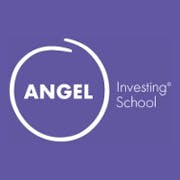
Angels
All underrepresented backgrounds
London, UK

Angels & founders
Women
London, UK

Angels
All underrepresented backgrounds
London, UK

Angels
All underrepresented backgrounds
London, UK

Angels
Women
Paris, France

Angels & founders
Women
Barcelona, Spain

This is absolutely true when looking at the Venture Capital industry. We are constantly looking for opportunities to create more space for new faces in the ecosystem across Europe and we're excited to be part of a growing number of initiatives working towards similar goals

VCs
Women
Berlin, Germany
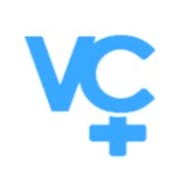
VCs
Women
Europe

VCs
All underrepresented backgrounds
Global
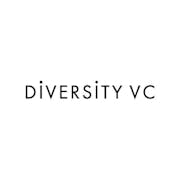
VCs
All underrepresented backgrounds
London, UK

VCs
All underrepresented backgrounds
Global
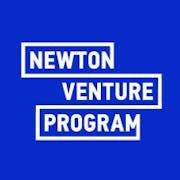
VCs
All underrepresented backgrounds
London, UK

VCs and PE
Women
Europe

VCs, founders & tech talent
Women
Amsterdam, Netherlands

VCs
Women
London, UK

VCs
Young people
Paris, France

VCs, founders & tech talent
Teenagers
London, UK
In recent years, there's been a rise in programmes designed to democratise the knowledge and skills of the VC industry, in order to diversify the industry. Baby VC (based in France), Future VC (global), Included VC (global), and Newton Venture Program (based in the UK) provided some background data to give a sense of their activities.
Over the past 5 years, they have onboarded a combined 1,500 participants across these programmes. 250 of those have since become investors, and while this is an important metric of 'success', there are also many other benefits and success stories emerging from these programmes. Many participants go on to raise a fund or micro fund to begin angel investing, secure VC or startup internships, take full-time positions in startups, or use their VC knowledge to raise for their own startup.

Women
Berlin, Germany

All underrepresented backgrounds
Stockholm, Sweden

Black founders
London, UK

Women
Amsterdam, Netherlands

All underrepresented backgrounds
London, UK

Founders
LGBTQIA+ and gender nonconforming
London, UK

Underrepresented entrepreneurs, particularly the Afro-Caribbean diaspora
London, UK

All underrepresented backgrounds
Boston, US & London, UK

Women
London, UK

Women
London, UK
All underrepresented backgrounds
Copenhagen, Denmark

Angels & founders
Women
Barcelona, Spain
of Black, African or Caribbean respondents say they have experienced discrimination while working in the European tech industry in the last 12 months - this compares to 16% for white respondents and 9% for white men respondents.
of women say they have experienced discrimination while working in the European tech industry in the last 12 months - this compares to 12% for men and increases to 39% for non-binary respondents.
When we asked survey respondents who reported having faced discrimination about the the nature of that discrimination, the majority mentioned gender. Next were age and nationality, and more than 20% mentioned ethnicity. While discrimination based on disability, religion, and sexual orientation was mentioned much less, this is partially because very few people in the respondent base identified as a minority in those areas. Notably, several respondents also mentioned discrimination related to pregnancy, motherhood, or general family care within their free text responses.
In partnership with Extend Ventures, we've looked at the gender and ethnicity mix of founding teams across Europe's unicorn companies. The profiles of 2,005 team members with the titles Founder, Co-Founder, CEO, COO, or CTO are included in the dataset - all other team members have been excluded.
Extend Ventures' algorithms have been developed to ensure equal accuracy for all ethnicities and genders through continuous evaluation and following the latest research in the field, thus reducing bias against categories with historically low representation. For the full methodology please refer to the appendix.
There's no denying it - the 'unicorn club' is overwhelmingly male. This is no surprise- all women teams account for 6% of all funding rounds in 2022, yet only receive 1% of the funding raised. Some women are able to overcome these odds, but it's a steep climb.
On their journey to unicorn status, companies founded by all-male teams represent 88% of all rounds raised, yet they take in nearly 92% of the funding. Mixed-gender teams (with minimum one women) represent 12% of these rounds, but their share of total funding is even smaller, at 8%. Interestingly, this gap is reversed for mixed-gender teams if we look at all companies (not just those that reach unicorn status): they represent 10% of rounds raised, but 12% of all funding. In the entire dataset we used, only no European unicorn company was identified with an all-women founding team.
Teams with at least one founding member from a minority ethnic background represent less than 13% of unicorn companies, though when they do raise a round, they tend to raise slightly more, with their total share of funding at just over 14%.
Teams made up of all minority ethnic founders are even more underrepresented. They make up just 1.4% of unicorns, and the rounds they raise are disproportionately small at only 0.7% of total unicorn funding - half as much as would be par with their share of rounds.
Looking across unicorn companies, the sector with the most female founder representation is - by quite a long way - the built environment, where half (3 of 6) founding teams include female founders. Enterprise software and enterprise infrastructure follow with around 20%.
As for the sectors with the highest ethnic minority founder representation, enabling technologies and communications both see 30% of teams with at least one founder from an ethnic minority, and 10% with minority-only teams. Information has the next highest proportion of minority-only teams, at 8%. Clean Energy is the only industry in the sample where all eight teams mapped are all-white.
Where are the unicorns with underrepresented founders located? Denmark tops the charts for highest proportions of unicorns with mixed-gender founding teams, at 22% (2 in 7) while the UK has the highest number absolute number at 18 mixed gender or all women teams.
Teams with ethnic minority founders are most common in Switzerland (36% or 5 of 14), the Netherlands (20%, 5 of 20) and Austria (20%, 1 of 5). Norway's unicorns have the highest proportion of all-minority teams in Europe, at 8.3%- to reach this rank it only took one team in 12 to qualify.

Co-founded by Ophelia Snyder

Co-founded by Sue Haddleton

Founded by Charlotte Tilbury
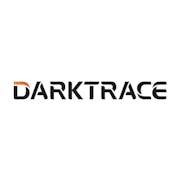
Co-founded by Poppy Gustafsson, Emily Orton and Nicole Eagan

Co-founded by Osnat Michaeli

Co-founded by Victoria van Lennep

Co-founded by Sofia Nunes

Co-founded by Ida Johnsen

Co-founded by Shrestha Chowdhury

Co-founded by Pernilla Nyrensten

Founded by Anne Boden
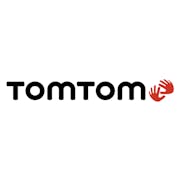
Co-founded by Corinne Vigreux
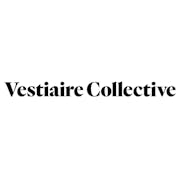
Co-founded by Fanny Moizant and Sophie Hersan
In collaboration with Dealroom, we set out to identify the largest deals going to all-women teams in 2022. Looking at the business models in this table, it's notable - though perhaps not surprising - that many have a focus specifically on female health. This may be evidence of the idea that underrepresented founders are likely to increase attention on issues and opportunities faced by their own group, that have gone unnoticed or undervalued by other founders and investors.
| Company | Country | Stage | Amount ($M) | Date |
|---|---|---|---|---|
| Proximie | United Kingdom | Series C | 80 | Jun 2022 |
| Localyze | Germany | Series B | 35 | Sep 2022 |
| Unobravo | Italy | Series A | 19 | Jul 2022 |
| Legl | United Kingdom | Series B | 18 | May 2022 |
| Nature Metrics | United Kingdom | Series A | 16 | May 2022 |
| Daye | United Kingdom | Series A | 13 | Oct 2022 |
| Vira Health | United Kingdom | Series A | 12 | Mar 2022 |
| PocketLaw | Sweden | Series A | 11 | May 2022 |
| Inne | Germany | Series A | 10 | May 2022 |
| Helios | France | Seed | 10 | Apr 2022 |
Looking at the top 10 largest rounds raised by founding teams that include both men and women, the scale of deal sizes expands significantly compared to women-only founding teams and includes many rounds sized over $100M or more, including a $550M Growth round raised by Finland's Relex Solutions in February 2022 and Newcleo's $330M Growth round from June 2022.
| Company | Country | Stage | Amount ($M) | Date |
|---|---|---|---|---|
| Relex Solutions | Finland | Growth | 550 | Feb 2022 |
| Newcleo | United Kingdom | Growth | 330 | Jun 2022 |
| Lendable | United Kingdom | Growth | 277 | Mar 2022 |
| InnovaFeed | France | Series D | 250 | Sep 2022 |
| Multiverse | United Kingdom | Series D | 220 | Jun 2022 |
| GrowUP Farms | United Kingdom | Series A | 132 | Feb 2022 |
| Wandelbots | Germany | Series C | 84 | Jan 2022 |
| Yokoy | Switzerland | Series B | 80 | Mar 2022 |
| IMMO Capital | United Kingdom | Series B | 75 | Apr 2022 |
| Sweep | France | Series B | 71 | Apr 2022 |

VCs, founders & tech talent
Women
Amsterdam, Netherlands

Tech talent
Women
London, UK

Tech talent
Women
Paris, France

Tech talent
Women and non-binary
Paris, France

Founders
Women
London, UK

Angels & founders
Women
London, UK

Founders & tech talent
Black
London, UK

Black founders
London, UK

Founders
Women
London, UK

Tech talent
Ethnic Minorities
London, UK

Tech talent
All underrepresented backgrounds
Prague, Czech Republic

Tech talent
All underrepresented backgrounds
Paris, France

Tech talent
All underrepresented backgrounds
Global

Tech talent
All underrepresented backgrounds
Global

Founders
Women
Vienna, Austria

Founders
Women
London, UK

Founders
All underrepresented backgrounds
London, UK

Founders
LGBTQIA+ and gender nonconforming
London, UK

Tech talent
Women
Global

Tech talent
All underrepresented backgrounds
Global

Founders and tech talent
Black and Brown
London, UK

Founders & firms
All underrepresented backgrounds
Helsinki, Finland

Founders
Underprivileged socio-economic backgrounds
Paris, France

Tech talent
Muslims
London, UK
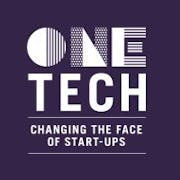
Founders & tech talent
All underrepresented backgrounds
London, UK

Founders & tech talent
Women
Porto, Portugal

VCs, founders & tech talent
LGBTQIA+ and gender nonconforming
London, UK

Founders & tech talent
Women
Milan, Italy

Founders
All underrepresented backgrounds
Paris, France

Tech talent
All underrepresented backgrounds
Switzerland

Angels & founders
Women
Barcelona, Spain

Founders
Women
Paris, France

Tech talent
Women
Global

Founders & tech talent
Women
Copenhagen, Denmark

VCs, founders & tech talent
All underrepresented backgrounds
London, UK
Current progress on diversity and inclusion is nowhere near fast enough. But that doesn't mean it's not possible. If we zoom out and look across the past five decades, we see important and sustained progress to build on.
Below, we have labelled unicorns as 'diverse' if they have at lease one woman or ethnic minority founding member - not as a perfect proxy for inclusion, but an indicator of broad shifts. While the sample size for the 2020's is small (we're only two years in after all), it is an encouraging sign of what may lie ahead, if players across the ecosystem put their weight behind the mission to increase diversity, equality and inclusion.
As widespread layoffs have shaken the sector, we check in on the talent market. Hiring remains a challenge for leaders, but there’s disagreement on the best way to attract and retain talent.
Year to date, more than 14,000 tech employees of European headquartered companies lost their jobs, representing 7% of the all tech employee layoffs globally.
Just 25% of respondents say it’s easier to acquire talent this year, while 39% say it’s continued to get harder.
This number will need to grow multiple fold to meet the need over the coming decade - 11m more ICT alone by 2030.
This year has brought many struggles and challenging choices for people in tech. One of the financial downturn's most visible and severe impacts on the tech sector is the wave of layoffs that started this year. Globally, more than 200,000 tech workers lost their jobs in the past year via headcount reductions at more than 1,000 companies, according to Layoffs Tracker.
Year to date, over 14,000 tech employees of European headquartered companies lost their jobs, representing 7% of all tech employee layoffs globally. These numbers only include layoffs with information on their reduction plans; a number of announcements didn't have data on how many employees were let go, so this data necessarily understates the layoffs' full scale.
The pace of global workforce reduction has accelerated rapidly in the second half of 2022, with November representing a new peak that has seen more than two times the number of layoffs as any prior month. Clearly, this is distressing for many people and has important implications for the global tech industry.
To help us quantify talent trends in European tech, Indeed provided data on the share of tech job postings proportionate to all job postings over time. Across the board, the share of tech job postings has declined relative to total postings, indicating that tech job creation has slowed compared to the broader job market. This trend is most pronounced in Italy. While many tech companies are still hiring, the net volume of new job postings is bound to slow in a bear market, as companies become more conservative in their people plans. Freezing hiring is often a first step in managing cash burn to preserve financial runway.
Despite trending downward, the share of tech jobs remains much higher in certain countries, such as Estonia and Portugal - where they make up more than double the proportion seen in most European countries.
Across all stages, the number of job openings has declined from the peak in Q1 2022, reflecting the slowdown in the pace of hiring in the tech sector. However, the overall decline is reverting back to the levels seen at the start of 2021, therefore not signalling a drastic shift in how companies hire.
Given the shift in the macro environment and the widespread layoffs, it is not surprising to see less confidence in tech in this year's survey: 28% of survey respondents believe tech now offers less attractive opportunities. Last year only 2% felt it was less attractive.
But despite the hardship, many remain positive. According to our survey, 41% of employees and department heads believe it is more attractive to work for a European tech company today than it was 12 months ago.
Notably, sentiment is particularly optimistic in France and Spain, where the local ecosystems have thrived in recent years. In fact, many within the ecosystem, especially those with stronger risk appetites, see the downcycle as an opportunity for faster learning and development, as well as for better access to risk-adjusted upside potential.
We asked founders, C-Level executives and department heads of tech companies to share their perspectives on acquiring new talent. Specifically, we wanted to know if it’s become harder or easier over the past year. Despite the wide-scale layoffs documented above, hiring top talent remains a challenge for most tech leaders.
Only 25% of respondents say it has become easier to acquire talent during 2022, and most of those say the change is moderate (“somewhat easier”), rather than significant. In fact, four in ten (39%) feel it has become harder to acquire talent compared to last year, while the remaining 36% feel the challenge remains the same. The redistribution of talent generated by workforce downsizing is likely to ease some of the pressure in the talent market, but it will always remain challenging to attract the best candidates.
The companies that raised the largest rounds of 2022 have generally continued to grow their workforce throughout the year. With a few exceptions - most notably from Klarna which was arguably early to act - the top 10 companies continued to add new jobs, albeit at a slower pace in the later months.
Bolt and Northvolt hired most overall this year, while the Access Group's team growth stayed most consistent. Climeworks, a carbon capture venture, is the only company on the list that hired more this year compared to the last. They also hired the fewest employees during the period last year, so this could be a broader indication of prudent growth.
According to our survey, leaders at Series A and Series D+ companies are most likely to have found it harder to acquire new talent this year compared to the last.
This may be pointing to a dilemma candidates face when considering what stage of tech company to join. More mature companies, which tend to be more highly-valued, might garner some scepticism about valuations, especially for those employees for whom stock-based compensation is a key consideration.
On the other end, candidates might find Series A companies to be insufficiently de-risked for a lower equity offering, compared to the higher risk but increased equity upside of joining at Seed. There might also be more scrutiny on cash offers and runway among candidates looking for reassurance on growth and stability.
A wide variety of countries in Europe have implemented policies supporting entrepreneurs and tech talent to relocate within their borders - from specific visas for work "of essential interest" to the national economy, to general 'digital nomad' visas, to immigration policies aimed at investors, this is one of the policy areas where we were able to find the most activity.
Curious? Check out more details here.
This is an incomplete list, compiled to give a flavour of policy initiatives across Europe supporting startups and venture capital. Want to make it more complete? Please share your contribution here.
| Country | Title | Status |
|---|---|---|
| Austria 🇦🇹 | Red-White-Red Card | Implemented ✅ |
| Belgium 🇧🇪 | Entrepreneur Visa (self employment) | Implemented ✅ |
| Denmark 🇩🇰 | Startup Denmark | Implemented ✅ |
| Estonia 🇪🇪 | StartUp Visa | Implemented ✅ |
| European Union 🇪🇺 | Long Term Residence Directive negotiations | In discussion 🗣 |
| Finland 🇫🇮 | D-visa | Implemented ✅ |
| France 🇫🇷 | French Tech Visa | Implemented ✅ |
| Germany 🇩🇪 | Increasing / simplifying access to international tech employees | In discussion 🗣 |
| Greece 🇬🇷 | Golden Visa | Implemented ✅ |
| Greece 🇬🇷 | "Startup Visa" White Card / Digital Nomad Visa | Implemented ✅ |
| Ireland 🇮🇪 | Start-up Entrepreneur Programme (STEP) | Implemented ✅ |
| Italy 🇮🇹 | Italia Startup Visa | Implemented ✅ |
| Italy 🇮🇹 | Investor Visa for Italy | Implemented ✅ |
| Italy 🇮🇹 | Italia Startup Hub | Implemented ✅ |
| Latvia 🇱🇻 | Digital Nomad Visa | Implemented ✅ |
| Latvia 🇱🇻 | Startup Visa | Implemented ✅ |
| Lithuania 🇱🇹 | Startup Visa Lithuania | Implemented ✅ |
| Lithuania 🇱🇹 | Startup Employee Visa | Implemented ✅ |
| Malta 🇲🇹 | Digital Nomad Visa | Implemented ✅ |
| Netherlands 🇳🇱 | Self-Employed person residence permit | Implemented ✅ |
| Netherlands 🇳🇱 | Startup visa | Implemented ✅ |
| Norway 🇳🇴 | 2021 visa reform | Implemented ✅ |
| Norway 🇳🇴 | Entrepreneur visa | In discussion 🗣 |
| Poland 🇵🇱 | Start-up Visa | Implemented ✅ |
| Portugal 🇵🇹 | D7 / Passive Income Visa | Implemented ✅ |
| Portugal 🇵🇹 | Digital Nomad Visa | Implemented ✅ |
| Portugal 🇵🇹 | Tech Visa | Implemented ✅ |
| Portugal 🇵🇹 | StartUp Visa | Implemented ✅ |
| Spain 🇪🇸 | StartUp Law (Workers) | Announced 📣 |
| UK 🇬🇧 | UK Startup Visa | Implemented ✅ |
In a highly competitive talent market, you typically see more rapid flows of candidates between companies and roles. For employers, therefore, retention - not just acquisition - is a critical challenge. We asked people working within European tech about the likelihood of moving companies in the next 12 months. Almost 50% are either somewhat or very likely to change roles in the coming year, while only 19% say a move is not likely at all.
People's likelihood to move companies is also notably dependent on the stage of the business they work for. Employees at the earliest-stage companies (Angel/Pre-Seed) give a particularly interesting mix of answers: while a large share (38%) are not at all likely to move, 54% are somewhat or very likely to leave. This may reflect the higher level of uncertainty involved at these stages, where progress towards key milestones can make or break.
It's also notable that the highest rate of employees who say they're "very likely" to move is found among Series B+ companies at 35%, compared to 13% for Series A. This jump may be a function of factors such as tenure where employees feel ready to move on or even company progress; employees lose faith in the company's ability to scale or feel the desire to move back to earlier stage opportunities once a company has reached the scaling stage.
When asked to share their biggest people & culture challenges over the past 12 months, tech leaders and founders highlight hiring, rapid team growth, and managing remote teams.
These challenges persist across all company stages though, as might be expected, Series A is where scaling-related people challenges really come to the fore. Hiring, rapidly growing the team, managing a remote team, and leadership and management, are all challenges that spike significantly at this stage.
At later stages, leaders cite a more diverse set of challenges. While one in five respondents at Series C+ report challenges related to carrying out layoffs, they also frequently cite challenges related to growing a team, retaining talent and organisation design structures. This is a natural evolution, as these challenges take on greater complexity as teams increase.

Years of rapid change have also led to a renewed wave of energy to create tools for employee wellbeing and productivity. That’s an exciting development, given that this report has shown time and time again that some of the most pervasive challenges founders face are related to talent and teams. Through periods of uncertainty, the companies that emerge stronger are those that have a clear role to play in the future economy. The future of work - from how we hire, to how we collaborate and retain - is an area that’s underserved by existing solutions, and where innovators can make a real impact.
This year, the survey asked founders to rate the importance of support from investors across a number of different areas. The highest-ranked area of support is corporate development, meaning support across areas such as fundraising, M&A and IPO readiness.
This is followed by Community, meaning the ability to enable connectivity with a relevant network of other founders.
Talent-related support is also clearly top of mind for many founders, particularly in terms of support with executive recruitment. Experienced, repeat founders are, interestingly, more likely to rank talent-related areas as important than first-time or less experienced founders.
are currently employed by European startups and scaleups, as of the end of October 2022. This number will need to grow multiple fold to meet the expected need for technology talent in Europe over the coming decade.
additional ICT (information and communications technology, or technologies) specialists are needed to meet Europe's long term demand for tech by 2030, according to the European Commission. This represents a more than doubling of the current population of ICT specialists in Europe, which currently stands at nine million.
Short supply and high competition means filling open tech roles is still a challenge. According to data from Indeed, over 45% of tech jobs across Europe are defined as 'hard to fill' (HTF) - meaning they remained unfilled for more than 60 days after listing. This is true for all countries except for the UK.
Despite the wave of layoffs this year, talent market conditions are not showing signs of easing. In fact, across most countries in the dataset, the share of tech job openings categorised as HTF actually increased in 2022 compared to 2021. Portugal is the only outlier where there has been a decline in HTF jobs, albeit from a high starting point of 57%.
Belgium, the Netherlands, and Italy stand out for their high share of HTF roles throughout the past three years. This is reflected in sentiment shared by the founders and management teams who responded to our survey: 44% of responses from Belgium, 50% of responses from the Netherlands, and 62% of responses from Italy said it is harder to acquire new talent now than it was 12 months ago.
Compared to the US, the share of HTF jobs is greater across the board in Europe, with the exception of the United Kingdom.
Of the largest 50 tech companies by number of employees in Europe, 50% are European-headquartered, 46% US, and the remaining 4% split between China and India. These companies have steadily grown their employee base in Europe and according to Revelio Labs estimates employ over 1 million people.
27% of employees are working for European companies, while the vast majority (70%) are employed by US big tech - in fact, Amazon, Microsoft, SAP, Google and Apple alone capture 51% of the employee base of the top 50 tech companies.
The growth over the time period 2018 to 2022 is also remarkable - the overall employee base has grown at a 9% compounded annual growth rate (“CAGR”), over 10x the rate of overall European employment growth (0.8% CAGR). Although the hiring slowdown (freeze for some) and recent announcements of redundancies hasn’t translated yet into the overall numbers.
The majority of employees at tech companies are not in fact technical talent. 63% work in functions like sales, marketing, operations or finance. In fact, the sales force captured by these companies is significant, representing 27% as of November 2022.
These functions have seen growth over the past 5 years across the board but the technical talent pool has been growing the fastest at a 12% compounded annual growth rate, versus 7% for Sales, 9% for Marketing and 8% for Operations.
The wave of hiring freezes and layoffs in big tech will be monitored closely by the startup and scaleup community for any spillover effects on the talent market. There's a reasonable expectation that the inflationary pressures on compensation driven by big tech mega budgets may start to ease as they drive net inflows back into the talent market, instead of the being the most active and least cost-sensitive recruiters.
For now though, founders are still feeling the competitive pressure from big tech, with 39% citing its negative impact on their ability to hire talent. Other tech startups are also key competitors for talent: 32% of founders cited competition from these sources as having a negative impact on their ability to acquire the talent they need.
Pave data for the UK shows salaries are trending down across most core tech salaries but software engineers' and product managers' salaries are recovering in October after reaching a low in September.
This year, we've sought to quantify how talent is moving thematically within the European tech industry. In other words, which areas - be that fintech, crypto or sustainability - are attracting the biggest movements of talent over time. To do this, we tracked headcount growth across 20,000 companies labelled and clustered thematically using a deep-learning language model.
This reveals interesting themes. Unsurprisingly, post pandemic, the inflow of talent going into healthcare and biotech has come down and similarly the huge inflow of capital into the quick grocery delivery segment led to growth in headcount for the many competing companies in that category, especially during the pandemic years of 2020 and 2021. This trend has now reversed aggressively, as these companies have struggled with sustainable growth.
HR tech, fintech, and crypto are among the themes with meaningful growth in their share of total talent flows this year, while sustainability also holds on to its share of the talent market.
It's critical for founders to understand their core levers for attracting world-class candidates. When we asked them what they think positively and negatively impacts their ability to do so, the most frequently cited positive factor was company mission. This is followed closely by flexible and/or remote work policies, and perceived company culture.
On the other hand, the factors founders perceive to negatively impact their hiring are the general supply of talent, as well as competition, both from other startups and scaleups, as well as from big tech companies.
It's interesting to see that founders are most likely to focus on intangible and cultural factors when assessing what talent cares about. As we'll explore below, these perceived priorities may be somewhat misaligned with those of actual senior leaders and employees.
While founders are most likely to highlight "company mission" as a competitive advantage that attracts talent, it seems senior leaders don’t always see eye to eye.
There's broad alignment between the groups, but department heads are less likely to emphasise intangible benefits like mission and culture and place more relative importance on competitive pay and the company's financial health.

Aligning on the culture you want to create, working on it every single day, and being open to feedback along the way is key. Every company has its own unique culture – for us we are focussed on building something open and deeply honest that encourages high challenge, with high support. From there you just need to make sure that you are hiring and retaining the people who show up and act in the way that fits your culture.
Having looked at what founders and department heads believe will attract the best talent, let's see how it matches with the priorities of employees.
We asked everyone in our survey to share their thoughts on the single most important factor for a company to become an employer of choice. The differences in answers are revealing. While founders and C-Level executives are most likely to rank an inspiring company mission as the single most important factor, employees are most likely to cite career growth opportunities. In fact, founders are two times more likely than employees to cite company mission (33% vs. 15%), and employees are two times more likely than founders to cite career growth (22% vs. 10%).
One area of alignment is company culture, which all groups are relatively likely to call out as a defining characteristic, though founders are still overweighting it compared to employees (25% vs. 20%).

Sadly, mass layoffs usually follow an economic slowdown. In the long run, this ruins the trust, reduces the morale, and creates a fearful company culture. Dedicated people are the most valuable asset. Creating an emotionally healthy environment will boost the results.
The decrease in valuations of technology company across the public and private markets has raised questions about the value of employee stock options. This uncertainty is reflected in survey responses from department heads and employees, where 31% say they do not feel sufficiently informed about the impact of the recent shift in macro outlook on the value of their stock options. The concern is highest for those working at companies of 100-500 employees, where lack of information is cited by 39% of respondents - typically Series B /C stage companies.
While a number of respondents (41%) agree that their companies are using stock options effectively to incentivise their employees, a sizeable proportion (35%) disagrees. There is always room to improve.
European tech companies have made great leaps in using employee ownership as a tool to acquire, retain and reward their teams. However, Europe still lags behind the US at all stages apart from Seed.
By Series A, the average European tech company has issued 7.9% of shares to executives and employees, compared to 9.9% for the average US company.
By Series C, this gap widens even further, with Europe at 9.8% compared to the US at 15.2%. While cultural differences likely account for a portion of this gap, structural policy barriers across Europe are also a major factor. This is currently being reviewed with a number of active policy initiatives emerging across Europe.
A common way global startups attract talent to early-stage and more risky ventures is via some mix of company ownership in remuneration - in other words, the promise of high gains should the venture become more profitable. In Europe, however, this has often been a tricky strategy, as many taxation schemes tax stock ownership or capital gains on that stock ownership prior to any liquidity event - meaning employees are essentially penalised for owning them as the company gains valuation, rather than rewarded. This is just one example of the ways stock options policy can be improved to help European ventures attract more and more talent.
Curious? Check out more details here.
This is an incomplete list, compiled to give a flavour of policy initiatives across Europe supporting startups and venture capital. Want to make it more complete? Please share your contribution here.
| Country | Title | Status |
|---|---|---|
| Belgium 🇧🇪 | Stock options tax regime | Implemented ✅ |
| Finland 🇫🇮 | Income Tax Act | Implemented ✅ |
| France 🇫🇷 | Bons de souscription de parts de créateurs d’entreprise (“BSPCE”) | Implemented ✅ |
| Germany 🇩🇪 | Discussions around enabling 'real' stock options | In discussion 🗣 |
| Greece 🇬🇷 | Stock options law 2019 | Implemented ✅ |
| Ireland 🇮🇪 | Key Employee Engagement Programme | Announced 📣 |
| Italy 🇮🇹 | Equity instruments remuneration | Implemented ✅ |
| Latvia 🇱🇻 | Stock options reform | Implemented ✅ |
| Norway 🇳🇴 | Updated ESOP regime | Implemented ✅ |
| Spain 🇪🇸 | StartUp Law (Stock Options) | Announced 📣 |
| Sweden 🇸🇪 | QESO - Qualified employee stock options | Implemented ✅ |
| UK 🇬🇧 | Company Share Option Plan (CSOP) | Announced 📣 |